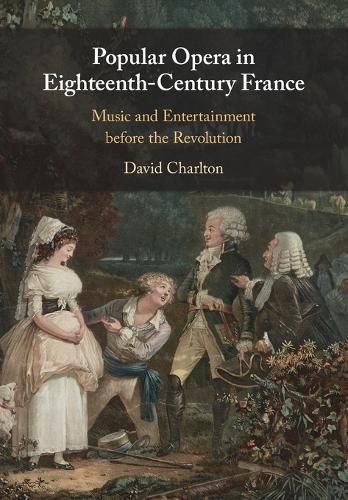Readings Newsletter
Become a Readings Member to make your shopping experience even easier.
Sign in or sign up for free!
You’re not far away from qualifying for FREE standard shipping within Australia
You’ve qualified for FREE standard shipping within Australia
The cart is loading…






This is the first book for a century to explore the development of French opera with spoken dialogue from its beginnings. Musical comedy in this form came in different styles and formed a distinct genre of opera, whose history has been obscured by neglect. Its songs were performed in private homes, where operas themselves were also given. The subject-matter was far wider in scope than is normally thought, with news stories and political themes finding their way onto the popular stage. In this book, David Charlton describes the comedic and musical nature of eighteenth-century popular French opera, considering topics such as Gherardi's theatre, Fair Theatre and the 'musico-dramatic art' created in the mid-eighteenth century. Performance practices, singers, audience experiences and theatre staging are included, as well as a pioneering account of the formation of a core of 'canonical' popular works.
$9.00 standard shipping within Australia
FREE standard shipping within Australia for orders over $100.00
Express & International shipping calculated at checkout
This is the first book for a century to explore the development of French opera with spoken dialogue from its beginnings. Musical comedy in this form came in different styles and formed a distinct genre of opera, whose history has been obscured by neglect. Its songs were performed in private homes, where operas themselves were also given. The subject-matter was far wider in scope than is normally thought, with news stories and political themes finding their way onto the popular stage. In this book, David Charlton describes the comedic and musical nature of eighteenth-century popular French opera, considering topics such as Gherardi's theatre, Fair Theatre and the 'musico-dramatic art' created in the mid-eighteenth century. Performance practices, singers, audience experiences and theatre staging are included, as well as a pioneering account of the formation of a core of 'canonical' popular works.